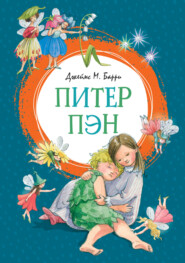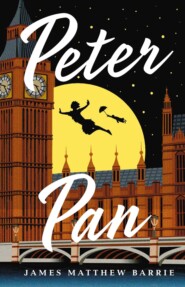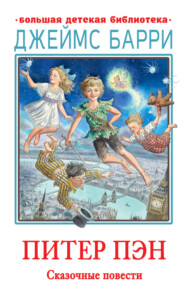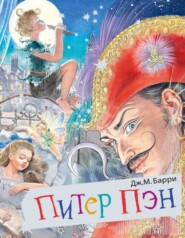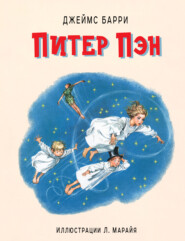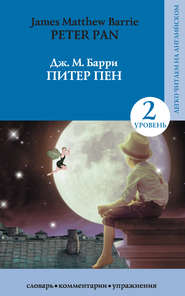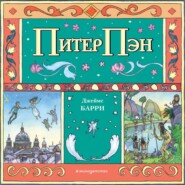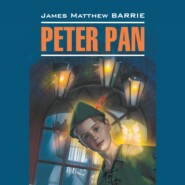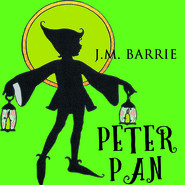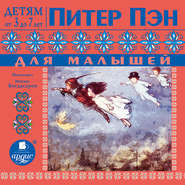По всем вопросам обращайтесь на: info@litportal.ru
(©) 2003-2024.
✖
The Little Minister
Настройки чтения
Размер шрифта
Высота строк
Поля
One may gossip in a glen on Sabbaths, though not in a town, without losing his character, and I used to await the return of my neighbour, the farmer of Waster Lunny, and of Silva Birse, the Glen Quharity post, at the end of the school-house path. Waster Lunny was a man whose care in his leisure hours was to keep from his wife his great pride in her. His horse, Catlaw, on the other hand, he told outright what he thought of it, praising it to its face and blackguarding it as it deserved, and I have seen him when completely baffled by the brute, sit down before it on a stone and thus harangue: “You think you’re clever, Catlaw, my lass, but you’re mista’en. You’re a thrawn limmer, that’s what you are. You think you have blood in you. You hae blood! Gae away, and dinna blether. I tell you what, Catlaw, I met a man yestreen that kent your mither, and he says she was a feikie fushionless besom. What do you say to that?”
As for the post, I will say no more of him than that his bitter topic was the unreasonableness of humanity, which treated him graciously when he had a letter for it, but scowled at him when he had none, “aye implying that I hae a letter, but keep it back.”
On the Sabbath evening after the riot, I stood at the usual place awaiting my friends, and saw before they reached me that they had something untoward to tell. The farmer, his wife and three children, holding each other’s hands, stretched across the road. Birse was a little behind, but a conversation was being kept up by shouting. All were walking the Sabbath pace, and the family having started half a minute in advance, the post had not yet made up on them.
“It’s sitting to snaw,” Waster Lunny said, drawing near, and just as I was to reply, “It is so,” Silva slipped in the words before me.
“You wasna at the kirk,” was Elspeth’s salutation. I had been at the Glen church, but did not contradict her, for it is Established, and so neither here nor there. I was anxious, too, to know what their long faces meant, and so asked at once —
“Was Mr. Dishart on the riot?”
“Forenoon, ay; afternoon, no,” replied Waster Lunny, walking round his wife to get nearer me. “Dominie, a queery thing happened in the kirk this day, sic as – ”
“Waster Lunny,” interrupted Elspeth sharply; “have you on your Sabbath shoon or have you no on your Sabbath shoon?”
“Guid care you took I should hae the dagont oncanny things on,” retorted the farmer.
“Keep out o’ the gutter, then,” said Elspeth, “on the Lord’s day.”
“Him,” said her man, “that is forced by a foolish woman to wear genteel ’lastic-sided boots canna forget them till he takes them aff. Whaur’s the extra reverence in wearing shoon twa sizes ower sma?”
“It mayna be mair reverent,” suggested Birse, to whom Elspeth’s kitchen was a pleasant place, “but it’s grand, and you canna expect to be baith grand and comfortable.”
I reminded them that they were speaking of Mr. Dishart.
“We was saying,” began the post briskly, “that – ”
“It was me that was saying it,” said Waster Lunny. “So, dominie – ”
“Haud your gabs, baith o’ you,” interrupted Elspeth. “You’ve been roaring the story to ane another till you’re hoarse.”
“In the forenoon,” Waster Lunny went on determinedly, “Mr. Dishart preached on the riot, and fine he was. Oh, dominie, you should hae heard him ladling it on to Lang Tammas, no by name but in sic a way 92 that there was no mistaking wha he was preaching at, Sal! oh losh! Tammas got it strong.”
“But he’s dull in the uptake,” broke in the post, “by what I expected. I spoke to him after the sermon, and I says, just to see if he was properly humbled, ‘Ay, Tammas,’ I says, ‘them that discourse was preached against, winna think themselves seven feet men for a while again.’ ‘Ay, Birse,’ he answers, ‘and glad I am to hear you admit it, for he had you in his eye.’ I was fair scunnered at Tammas the day.”
“Mr. Dishart was preaching at the whole clanjamfray o’ you,” said Elspeth.
“Maybe he was,” said her husband, leering; “but you needna cast it at us, for, my certie, if the men got it frae him in the forenoon, the women got it in the afternoon.”
“He redd them up most michty,” said the post. “Thae was his very words or something like them. ‘Adam,’ says he, ‘was an erring man, but aside Eve he was respectable.’”
“Ay, but it wasna a’ women he meant,” Elspeth explained, “for when he said that, he pointed his finger direct at T’nowhead’s lassie, and I hope it’ll do her good.”
“But I wonder,” I said, “that Mr. Dishart chose such a subject to-day. I thought he would be on the riot at both services.”
“You’ll wonder mair,” said Elspeth, “when you hear what happened afore he began the afternoon sermon. But I canna get in a word wi’ that man o’ mine.”
“We’ve been speaking about it,” said Birse, “ever since we left the kirk door. Tod, we’ve been sawing it like seed a’ alang the glen.”
“And we meant to tell you about it at once,” said Waster Lunny; “but there’s aye so muckle to say about a minister. Dagont, to hae ane keeps a body out o’ langour. Ay, but this breaks the drum. Dominie, 93 either Mr. Dishart wasna weel, or he was in the devil’s grip.”
This startled me, for the farmer was looking serious.
“He was weel eneuch,” said Birse, “for a heap o’ fowk speired at Jean if he had ta’en his porridge as usual, and she admitted he had. But the lassie was skeered hersel’, and said it was a mercy Mrs. Dishart wasna in the kirk.”
“Why was she not there?” I asked anxiously.
“Oh, he winna let her out in sic weather.”
“I wish you would tell me what happened,” I said to Elspeth.
“So I will,” she answered, “if Waster Lunny would haud his wheesht for a minute. You see the afternoon diet began in the ordinary way, and a’ was richt until we came to the sermon. ‘You will find my text,’ he says, in his piercing voice, ‘in the eighth chapter of Ezra.’”
“And at thae words,” said Waster Lunny, “my heart gae a loup, for Ezra is an unca ill book to find; ay, and so is Ruth.”
“I kent the books o’ the Bible by heart,” said Elspeth, scornfully, “when I was a sax year auld.”
“So did I,” said Waster Lunny, “and I ken them yet, except when I’m hurried. When Mr. Dishart gave out Ezra he a sort o’ keeked round the kirk to find out if he had puzzled onybody, and so there was a kind o’ a competition among the congregation wha would lay hand on it first. That was what doited me. Ay, there was Ruth when she wasna wanted, but Ezra, dagont, it looked as if Ezra had jumped clean out o’ the Bible.”
“You wasna the only distressed crittur,” said his wife. “I was ashamed to see Eppie McLaren looking up the order o’ the books at the beginning o’ the Bible.”
“Tibbie Birse was even mair brazen,” said the post, “for the sly cuttie opened at Kings and pretended it was Ezra.”
“None o’ thae things would I do,” said Waster Lunny, “and sal, I dauredna, for Davit Lunan was glowering over my shuther. Ay, you may scrowl at me, Elspeth Proctor, but as far back as I can mind, Ezra has done me. Mony a time afore I start for the kirk I take my Bible to a quiet place and look Ezra up. In the very pew I says canny to mysel’, ‘Ezra, Nehemiah, Esther, Job,’ the which should be a help, but the moment the minister gi’es out that awfu’ book, away goes Ezra like the Egyptian.”
“And you after her,” said Elspeth, “like the weavers that wouldna fecht. You make a windmill of your Bible.”
“Oh, I winna admit I’m beat. Never mind, there’s queer things in the world forby Ezra. How is cripples aye so puffed up mair than other folk? How does flour-bread aye fall on the buttered side?”
“I will mind,” Elspeth said, “for I was terrified the minister would admonish you frae the pulpit.”
“He couldna hae done that, for was he no baffled to find Ezra himsel’?”
“Him no find Ezra!” cried Elspeth. “I hae telled you a dozen times he found it as easy as you could yoke a horse.”
“The thing can be explained in no other way,” said her husband, doggedly, “if he was weel and in sound mind.”
“Maybe the dominie can clear it up,” suggested the post, “him being a scholar.”
“Then tell me what happened,” I asked.
“Godsake, hae we no telled you?” Birse said. “I thocht we had.”
“It was a terrible scene,” said Elspeth, giving her husband a shove. “As I said, Mr. Dishart gave out Ezra eighth. Weel, I turned it up in a jiffy, and syne looked cautiously to see how Eppie McLaren was getting on. Just at that minute I heard a groan frae the 95 pulpit. It didna stop short o’ a groan. Ay, you may be sure I looked quick at the minister, and there I saw a sicht that would hae made the grandest gape. His face was as white as a baker’s, and he had a sort of fallen against the back o’ the pulpit, staring demented-like at his open Bible.”
“And I saw him,” said Birse, “put up his hand atween him and the Book, as if he thocht it was to jump at him.”
“Twice,” said Elspeth, “he tried to speak, and twice he let the words fall.”






